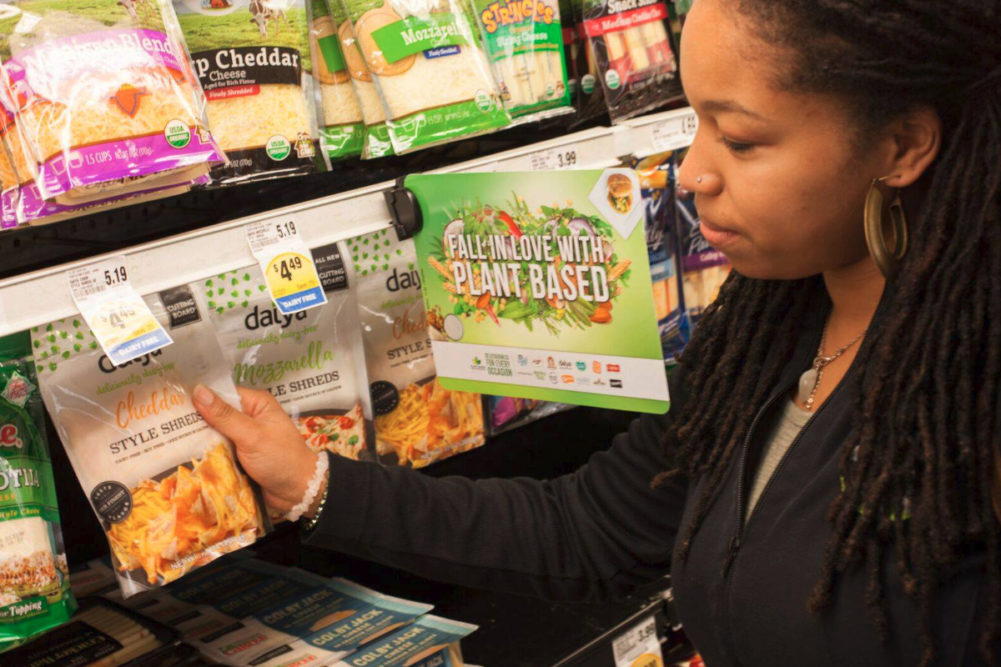WASHINGTON – Retail sales of dairy and meat alternatives approached $7 billion in 2020, according to data from the Plant Based Foods Association and the Good Food Institute. The two groups commissioned data from the market researcher SPINS and refined it to reflect only plant-based products that directly replace animal-based products.
“Twenty-twenty was a breakout year for plant-based foods across the (retail) store,” said Kyle Gaan, research analyst for the Good Food Institute. “The incredible growth we saw in plant-based foods overall, particularly plant-based meat, surpassed our expectations and is a clear sign of where consumer appetites are heading. Almost 40% of households now have plant-based milk in their fridge, and at this rate, it won’t be long until we see just as many households purchasing plant-based meat.”
Plant-based milks remains the largest animal-based alternative product category and reached sales of $2.5 billion in 2020, according to the SPINS data, 20% higher than in 2019. Milk alternative sales made up 15% of the entire category in 2020.
Almond milk remains the category leader and accounts for about two-thirds of plant-based milk dollar sales. Oat milk rose to the second-leading segment, ahead of soy milk, with sales more than tripling in 2020 and growing 25-fold since 2018.
Other plant-based dairy alternatives like yogurt, cheese, ice cream, creamers and other products neared $2 billion in retail sales in 2020. Both yogurt and cheese sales rose 20% and 42%, respectively, during the year.
Plant-based meat sales were $1.4 billion in 2020, up 42% from 2019 when category sales were $962 million. Meat alternative sales now account for 2.7% of retail packaged meat sales, according to the SPINS data.
How plant-based meat alternatives are merchandised in retail stores matters. Refrigerated products, those placed on shelves adjacent conventional meat, saw sales rise 75% in 2020, twice as fast as frozen plant-based meat sales.
“The plant-based category has evolved to the point that retailers can’t limit who they consider the plant-based shopper,” said Dawn Vanlandingham, head of retail for SPINS. “They should now assume everyone is a potential plant-based buyer and educate them enough to see the possibilities. Between the innovation in plant-based products and the gradual return to less restrictive shopping measures, 2021 offers many opportunities for retailers to appeal to more customers and expand their plant-based offerings.”

